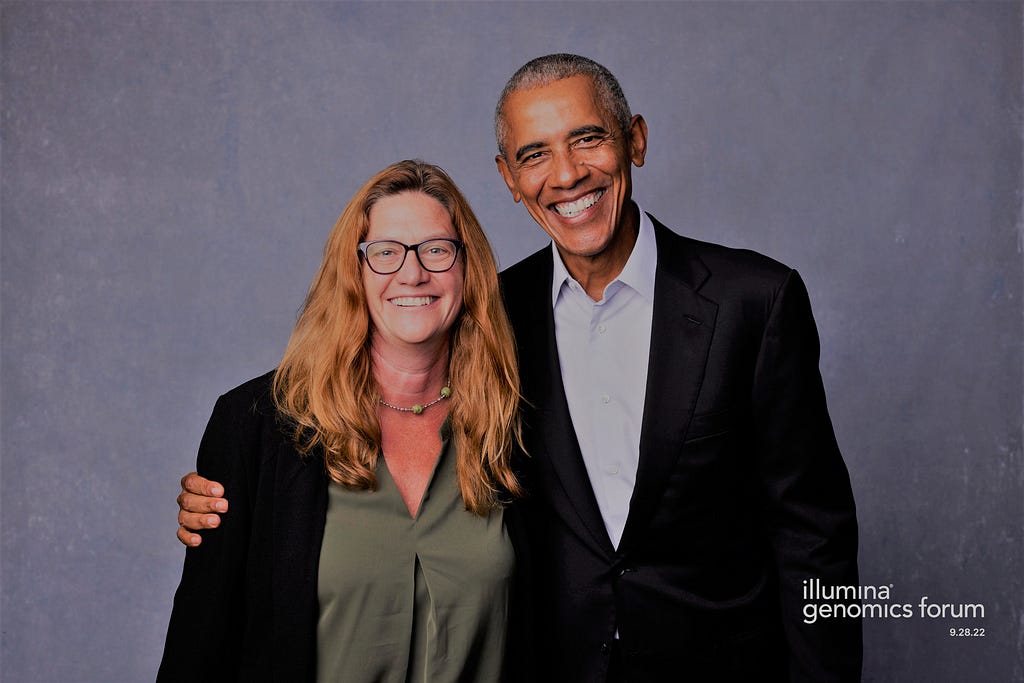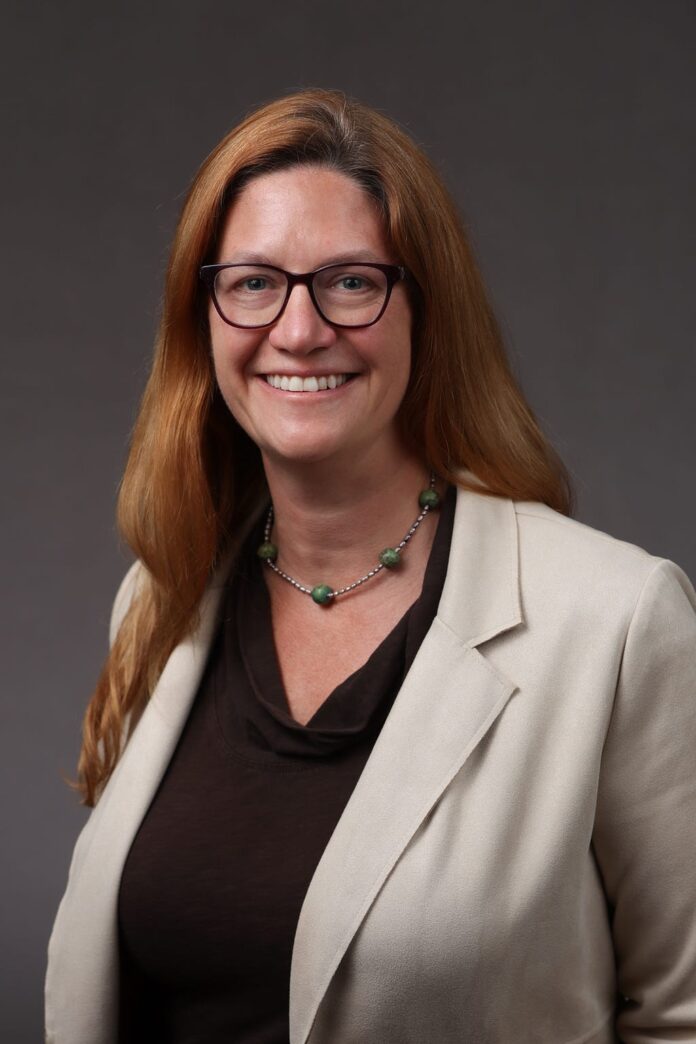Healing A Broken Mental Health System: Kristine Ashcraft Of YouScript On 5 Things That Can Be Done To Fix Our Broken Mental Health System
An Interview With Stephanie Greer
Ensuring that every individual has their basic needs met is the first step. We cannot expect people to be physically or mentally well if they lack reliable access to food, shelter, and safety.
The current state of the mental health system is a conversation that echoes in the halls of policy-making, the corners of social advocacy, and within the private struggles of individuals and families. As we continue to witness an unprecedented need for robust mental health support, the shortcomings of the existing system become more glaring. It is within this backdrop that we seek the insight of those who are at the forefront of behavioral health. In this interview series, we are talking to behavioral health leaders, policymakers, mental health practitioners, advocates, and reformers to share their perspectives on healing our broken mental health system. As a part of this interview series, we had the pleasure of interviewing Kristine Ashcraft.
Kristine has worked in pharmacogenomics (PGx) since 2000 and was named one of the 25 leading global voices in precision medicine. She is the President and Founder of YouScript, an award-winning clinical decision support tool shown to reduce medication risk and healthcare costs in multiple peer-reviewed studies. Kristine has authored multiple publications on the clinical and economic benefits of PGx testing and serves on numerous advisory groups including the STRIPE Steering Committee, the FDA collaborative community for PGx, CPIC, and the American Cancer Society Cancer Action Network PGx task force.
Thank you so much for joining us in this interview series. Before we start, our readers would love to “get to know you” a bit better. Can you tell us a bit about your background and your childhood backstory?
I am a proud Air Force brat. I went to 17 schools in 17 years in 5 countries and 7 states. All of that moving taught me not to fear change and to seek out new experiences and friendships.
Can you please give us your favorite “Life Lesson Quote”? Can you share how that was relevant to you in your life?
“Everything you’ve ever wanted is sitting on the other side of fear.” When I was pursuing my MBA in Entrepreneurship at Babson, we had a career development course where the instructor asked us to list something we were afraid of that was holding us back in our careers. I listed public speaking. I disliked it, but I realized I needed that skill to grow as an executive leader. I joined Toastmasters and practiced until it became easier. Now, I’ve spoken at hundreds of conferences and meetings including the Illumina Genomics Forum, where I had the opportunity to meet former President Obama.
Let’s now shift to the main part of our discussion. It is often said that “the mental health system in America is broken”. What does that statement mean to you? From your perspective what is “broken” today?
That’s a complex issue. At its core, we often neglect basic safety net needs — access to food, shelter, and other essentials — that contribute to toxic stress and trauma, both in childhood and throughout life. We don’t emphasize the importance of exercise and balanced diets as foundational for good health. There is also a growing shortage of mental health providers and a troubling trend toward medication over therapy. This reflects a broader issue where we tend to treat patients in isolated silos rather than holistically and are slow to adopt new evidence-based practices that could improve outcomes.
What about any bright spots? Do you think there are any elements that we get right in today’s world that we wouldn’t want to reverse unintentionally?
I believe that advances in omics, telehealth, clinical decision support, and digital health tools show great promise, especially as we learn to leverage AI in safer, more meaningful ways.

In your opinion, what are the 5 most impactful things that could help heal the broken mental health system? These could be on any level including training, workforce, policy, culture, equity etc.
- Ensuring that every individual has their basic needs met is the first step. We cannot expect people to be physically or mentally well if they lack reliable access to food, shelter, and safety.
- We must invest in and prioritize the fundamental tools for health, such as exercise and balanced whole food diets. For instance, why do we subsidize heavily processed foods instead of healthy, fresh, or minimally processed options?
- Unfortunately, mental health diagnosis is still based on a person’s symptoms rather than evidence-based confirmatory testing. Hopefully with improvements in omics and AI, we will move beyond that. I am going to focus on what is broken, and currently fixable, after diagnosis of a mental health condition. This is where pharmacogenomics or PGx, genetic testing to optimize drug and dose selection, can help most, and is underutilized. If a provider determines a patient may benefit from mental health medication, they typically prescribe in a one-size-fits-all manner for that condition. The patient takes the medication for several weeks to see if the desired response is achieved and then returns to the provider for drug or dose adjustment. Yet virtually all mental health medications are metabolized by two liver enzymes and PGx testing evaluates to what level we produce these enzymes. If you make less enzyme than expected, standard doses can lead to severe adverse effects and if you make more enzyme than expected, the medication may be broken down so quickly that there is no treatment benefit. One study showed that patients that make little to none, or way more than typical amounts, of the liver enzyme responsible for Lexapro and Celexa metabolism are 34% more likely to be suicide victims. Medication is not always the answer, but when it is, we should use all the evidence-based science at our disposal to reduce trial-and-error prescribing that can result in real and avoidable harm.
- PGx testing also illustrates the problem of treating conditions in silos rather than holistically. When providers do order PGx testing, they often focus solely on mental health medications, overlooking how the same liver enzymes can affect responses to medications in other areas like cardiovascular care, pain management, and cancer treatment. I co-authored a publication that assessed over 30,000 patients who had PGx testing and almost 60% had drug-gene interactions indicating need to consider a drug or dose change in more than one clinical area. And that was just based on medications being taken at the time of testing. These missed interactions can lead to real and avoidable harm both at the time of testing and in the future. Think of it like a seatbelt for medications, only instead of using it on every car ride, you use it for every prescription.
- Finally, while PGx and medication safety are crucial, we must not overlook the need for therapy and other interventions beyond medication. Ideally, patients should be equipped with tools to lead fulfilling lives without relying solely on medication. In mental health, this involves addressing underlying social determinants of health and ensuring access to appropriate therapy and when indicated, treatment for comorbidities, especially those that can exacerbate mental health concerns.
If all of the items on your list were magically implemented tomorrow what change might we see in the world? What are the signs (big and small) that would show us that the system is being healed?
If mental health were prioritized, we’d likely see less division, reduced homelessness, lower gun violence, and an overall improvement in community well-being.
What is a project you or others are working on today that gives you hope? How can our readers learn more about this work?
I collaborate with other dedicated colleagues on policy initiatives aimed at overcoming barriers to wider adoption of pharmacogenomic testing, which could help reduce the epidemic of adverse drug events claiming an American life every two minutes. The first is the Right Drug Dose Now Act of 2024, a bipartisan Congressional Act introduced by Swalwell and Crenshaw that would help turn this tide in part by improving PGx provider education and clinical decision support. You can learn more at fourthcause.org/rightact. The second is biomarker legislation spearheaded by the American Cancer Society Cancer Action Network that is aligning state commercial and Medicaid coverage for biomarker testing, including PGx, with nationally recognized guidelines or existing Medicare coverage policies. You can learn more about these efforts at https://www.fightcancer.org/what-we-do/access-biomarker-testing.
How do you see technology shaping the future of mental health care and its accessibility?
I believe we are on the brink of a transformational shift with AI, digital health, and omics improving and personalizing diagnosis, treatment options, and access to evidence-based tools for better health.
In your view, how do social factors like poverty, education, and culture affect mental health care and its effectiveness?
As I mentioned, addressing root causes of trauma, such as access to food, shelter, and safety, is crucial. We also need to prioritize exercise and balanced whole food diets as essential components of a healthy life, both through policy and cultural changes.
In light of the growing mental health crisis among young people, what innovative approaches or interventions have proven most successful for children and adolescents?
When medications are needed, PGx testing is especially vital for children and adolescents and provides prescription guidance benefits throughout their lives.
We are very blessed that some very prominent names in Business, VC funding, Sports, and Entertainment read this column. Is there a person in the world, or in the US with whom you would love to have a private breakfast or lunch, and why? He or she might just see this if we tag them. 🙂
What would the national response be if four full 737s fell from the sky each day with all lives on board lost? That is the daily toll of adverse drug events, many avoidable, in the U.S.
We talk about spiraling healthcare costs and drug costs, but very little attention is given to the fact that adverse drug events cost more than the drugs themselves or any major chronic disease.
I’d love to talk to anyone that wants to raise awareness about this real and avoidable public health crisis and how to reduce risks for loved ones, employees, and society.
How can our readers further follow your work online?
Please reach out to me on LinkedIn, I’m always pleased to connect with other people looking to improve healthcare.
Thank you for your time and thoughtful answers. I know many people will gain so much from hearing this.
About The Interviewer: Stephanie Greer, PhD is the Co-founder and CEO of Akin Mental Health — a company dedicated to guiding families on their journey supporting a loved one with mental health challenges like bipolar disorder, schizophrenia and severe depression. Stephanie is passionate about this topic from her own personal experience growing up with a mother who struggled with bipolar 1 disorder and found a path forward to overcome the obstacles and live well. Stephanie’s professional experience includes a doctorate in neuroscience as well as design research roles at Hopelab and Apple. Stephanie brings this personal passion together with her world-class science and technology background to support families across the US in their personal journeys supporting loved ones with mental illness. To learn more about Akin Mental Health and join our community, visit us at akinmh.com.
Healing A Broken Mental Health System: Kristine Ashcraft Of YouScript On 5 Things That Can Be Done… was originally published in Authority Magazine on Medium, where people are continuing the conversation by highlighting and responding to this story.


